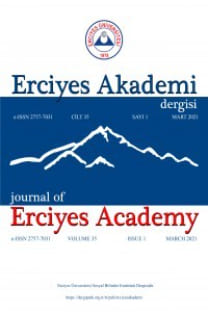The Concept of Imitation in Plato and Aristotle (Aristo ve Plato’da Taklit)
Eflatun ve Aristo felsefelerinde imitation (yansıtma) kavramı önemli bir yer tutmaktadır. Her iki düşünür de sanatın gerçeğin bir yansıtılması olduğu düşüncesini savunmuş, şiir, mimari ve resim gibi sanatların doğadan yola çıkarak gerçekleştirildiğini söylemişlerdir. Eflatun, ideler aleminin var olduğuna inanmış ve doğanın ideler dünyasının bir yansıması olduğunu ileri sürmüştür. Doğayı yansıtan sanat eseri bu anlamda ideler aleminden iki derece daha uzakta bulunmaktadır. Bu yüzden bir sanat eseri gerçeği yansıtmaktan çok gerçekten uzaklaştığı için Eflatun, sanata karşı çıkmıştır. Aristo ise var olan dünya ile uğraşmış, sanatın bu dünyayı ideal anlamda yansıttığını söylemiştir. Aristo, sanatçının doğada var olan bir nesneyi olduğu gibi değil de olması gerektiği gibi yansıttığına inanmaktadır. Eflatun’da kişiyi gerçekten uzaklaştıran sanat, Aristo’da kişiyi gerçeğe yaklaştırmaktadır
THE CONCEPT OF IMITATION IN PLATO AND ARISTOTLE (ARISTO VE PLATO’DA TAKLİT)
This paper discusses the concept of imitation in Plato and Aristotle. Plato and Aristotle argue that artist (Demiurge) and poet imitate nature, thus, a work of art is a relection of nature. However, they have different views on the functions of imitation in art and literature. Plato believes in the existence of the ideal world, where exists a real form of every object found in nature. A work of art –which reflects nature- is twice far from the reality it represents. Aristotle, on the other hand, does not deal with the ideal world, instead he analyses nature. He argues that a work of art does not imitate nature as it is, but as it should be. In this sense, an artist does not violate the truth but reflects the reality
